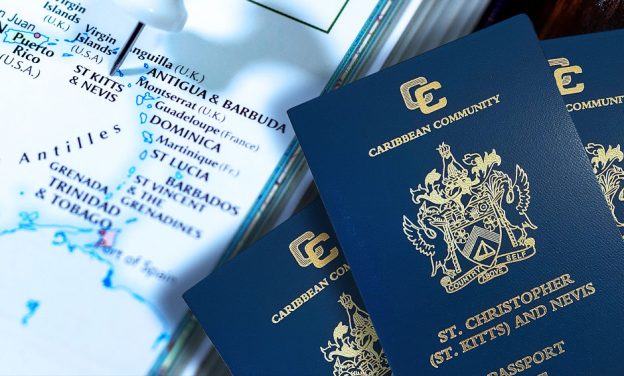For generations, the American Dream meant building wealth, securing property, and creating opportunity within the United States. Yet in 2025, many forward-thinking investors are expanding that dream into something bigger: American dual citizenship. As global markets shift, tax rules evolve, and governments impose new restrictions, high-net-worth individuals increasingly see a second passport not as a luxury but as a necessity.
American dual citizenship allows investors and families to diversify not only their assets but also their identities. As a result, it opens doors to international banking, education, and investment opportunities while serving as an insurance policy against political or economic instability. Above all, it demonstrates foresight in a world where flexibility and resilience are invaluable.
At Apex Capital Partners, with more than 30 years of experience guiding clients across the investment migration landscape, we understand both the opportunities and the complexities of American dual citizenship. Consequently, this guide explores why dual citizenship is rising in importance, the benefits and challenges for Americans, and the leading programs in 2025 that can provide global security and diversification.
Why Americans Pursue Dual Citizenship
Americans face unique considerations when it comes to second citizenship. Because the United States taxes citizens on worldwide income, regardless of where they reside, planning must be intentional. Although this may be true, dual citizenship remains a practical and strategic solution for those who want to optimize their lifestyle and financial future.
In 2025, the top motivations for American investors include:
- Mobility and Travel: Investors can move more freely between jurisdictions, not only for business but also for lifestyle purposes.
- Asset Diversification: Another key point is the ability to invest in real estate, funds, and businesses abroad with fewer restrictions.
- Education and Healthcare: Families gain access to high-quality schools and medical systems outside the U.S.
- Generational Planning: Citizenship can be passed to children, ensuring long-term security.
- Plan B Security: In the event of domestic or global instability, another passport provides a fallback option.
After all, the rise of remote work and digital entrepreneurship has made geographic flexibility more important than ever. If an American investor can live anywhere, then dual citizenship becomes both a practical tool and a lifestyle enhancer.
Benefits of American Dual Citizenship
Dual citizenship delivers measurable advantages. To begin with, it creates global flexibility. Americans with a second passport can structure their lives in more than one jurisdiction, ensuring that no single government controls every aspect of their financial and personal freedom.
Tax and Wealth Strategies also stand out. Since Americans must file U.S. taxes regardless of residency, the benefits may seem limited at first. However, with this in mind, dual citizenship combined with structured residency planning can reduce exposure to certain taxes, particularly when shifting investments or establishing businesses abroad.
Lifestyle Options emerge as another key benefit. Not only do programs open the door to new communities and cultures, but they also expand the horizons of where families can live, work, or retire.
Generational Advantages are equally important. In many programs, children, spouses, and even parents may be included. As a result, entire family structures gain resilience and access to global opportunities.
Access to New Markets should not be overlooked. With dual citizenship, investors can open accounts, launch companies, and participate in opportunities otherwise unavailable to foreign nationals.
In short, dual citizenship provides balance: security, opportunity, and legacy planning all rolled into one.
Challenges of Dual Citizenship for Americans
Despite these advantages, American investors must navigate challenges. For one thing, tax compliance remains a reality. The IRS expects worldwide income reporting, and FATCA requirements continue to be stringent.
Another key point involves legal obligations abroad. Although CBI programs do not require military service or residency, it is important to realize that rules vary by country.
Expatriation Risks also come into play. If, for example, an American renounces citizenship, an exit tax may apply. For this reason, most investors prefer to maintain both citizenships rather than sever U.S. ties.
Additionally, regulatory changes occur frequently. Programs evolve, minimum investments adjust, and timelines shift. All in all, the best strategy is to act sooner rather than later, while favorable terms still apply.
Accordingly, professional guidance matters. Apex Capital Partners, as licensed agents across multiple jurisdictions, ensures compliance and peace of mind every step of the way.
Top Programs for American Dual Citizenship in 2025
In light of these considerations, several programs stand out in 2025 as ideal for Americans. Apex Capital Partners features these as part of our global portfolio.
St. Kitts and Nevis Citizenship by Investment
As the world’s longest-running program, St. Kitts and Nevis sets the benchmark. Following the 2024 OECS Memorandum of Agreement, the minimum investment threshold is now standardized.
Key Features:
- Minimum Investment: $200,000 (real estate) or $250,000 (Sustainable Island State Contribution)
- Processing Time: 6–9 months
- Family Inclusion: Spouses, children, and in some cases parents
Thus, St. Kitts and Nevis remains a cornerstone program for Americans seeking reliability and legacy.
Antigua and Barbuda Citizenship by Investment
By comparison, Antigua and Barbuda offers strong value for larger families. Provided that investors contribute at least $200,000 in real estate, they can secure a cost-effective pathway.
Key Features:
- Minimum Investment: $200,000 (real estate) or $230,000 (National Development Fund)
- Processing Time: 6–9 months
- Family Inclusion: Particularly suited to households with multiple dependents
Consequently, Antigua is a balanced choice for Americans prioritizing family planning.
Dominica Citizenship by Investment
Dominica remains, by all means, a cost-efficient and respected option. As has been noted in recent years, the program’s efficiency attracts global investors.
Key Features:
- Minimum Investment: $200,000 (real estate) or $225,000 (Economic Diversification Fund)
- Processing Time: 6–9 months
- Family Inclusion: Flexible structures available
Therefore, Dominica appeals to Americans who want reliability without unnecessary complexity.
Grenada Citizenship by Investment
Grenada distinguishes itself because of its E-2 visa treaty with the United States. As a result, it is particularly attractive for those who want dual citizenship while retaining business ties in the U.S.
Key Features:
- Minimum Investment: $200,000 (real estate) or $235,000 (National Transformation Fund)
- Processing Time: 6–9 months
- Unique Advantage: Eligibility to apply for a U.S. E-2 investor visa
Evidently, Grenada is a strategic choice for investors who value options both within and outside the U.S.
St. Lucia Citizenship by Investment
St. Lucia’s flexibility is unmatched. Because it offers multiple pathways, investors can align their goals with either real estate or government fund contributions.
Key Features:
- Minimum Investment: $200,000 (real estate) or $240,000 (National Economic Fund)
- Processing Time: 6–9 months
- Family Inclusion: Dependents can be added
Altogether, St. Lucia provides versatility that appeals to investors with varied preferences.
Portugal Golden Visa
Although Portugal discontinued real estate as a qualifying option in 2024, the Golden Visa remains attractive due to alternative investments.
Key Features:
- Minimum Investment: €500,000 (funds) or €250,000 (cultural contribution)
- Processing Time: 12–18 months
- Residency Pathway: Leads to citizenship after 5 years
Therefore, Portugal stands out as a European gateway for Americans who want EU residency with long-term citizenship potential.
Greece Golden Visa
Greece offers one of the most affordable EU pathways. Compared to other European options, it balances cost with opportunity.
Key Features:
- Minimum Investment: €250,000–€500,000 (real estate, depending on location)
- Processing Time: 6–9 months
- Residency Pathway: Citizenship possible after 7 years
In sum, Greece remains highly competitive for investors focused on Europe.
Turkey Citizenship by Investment
Turkey’s program, on the other hand, is one of the fastest. Americans can achieve citizenship within a matter of months.
Key Features:
- Minimum Investment: $400,000 (real estate)
- Processing Time: 4–6 months
Accordingly, Turkey appeals to investors who prioritize speed and geographic reach.
Planning Ahead with Apex Capital Partners
With this purpose in mind, securing American dual citizenship requires precision. While the benefits are significant, the risks of missteps—whether tax penalties, noncompliance, or poor jurisdictional choices—are equally significant.
For this reason, Apex Capital Partners integrates decades of licensed experience with government-level advisory work. We support clients through pre-check assessments, application preparation, due diligence, and long-term planning. As I have shown, careful execution leads to peace of mind.
The Future of American Dual Citizenship
All things considered, demand for dual citizenship among Americans is growing rapidly. In the final analysis, it reflects not just a desire for convenience but a deeper strategy for resilience and opportunity.
If investors want to protect wealth, expand their lifestyle options, and prepare for generational security, then American dual citizenship provides the most compelling evidence of foresight.
Therefore, the most strategic question is not “if” but “when.” And the answer, undeniably, is that sooner is better than later. Apex Capital Partners stands ready to help clients secure this modern American Dream with expertise, integrity, and results.






